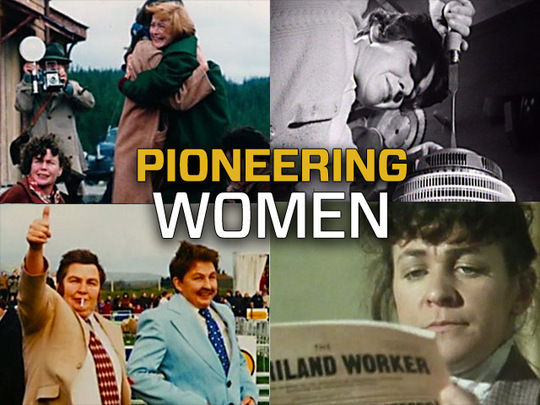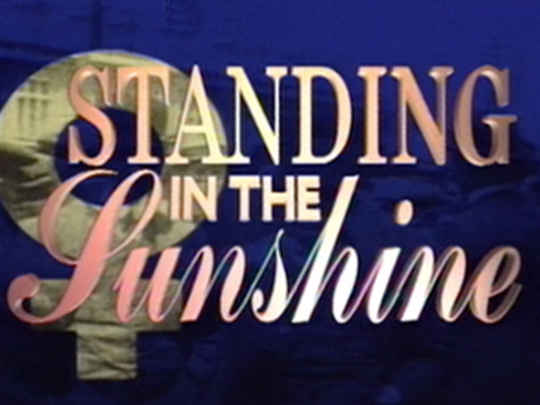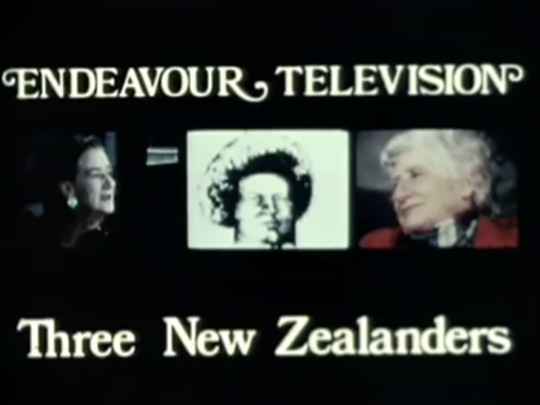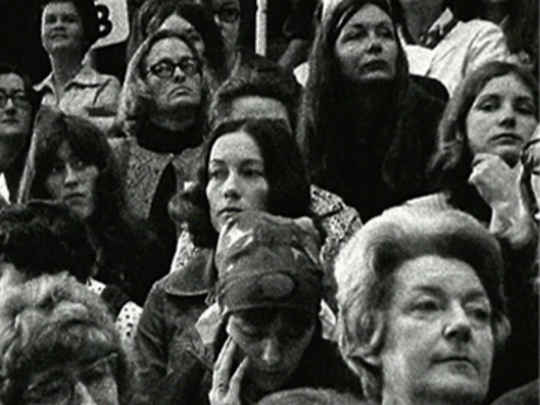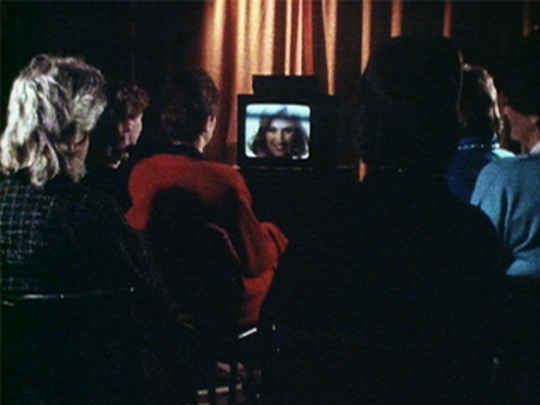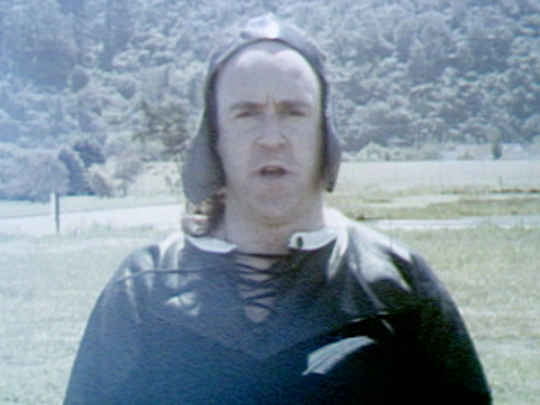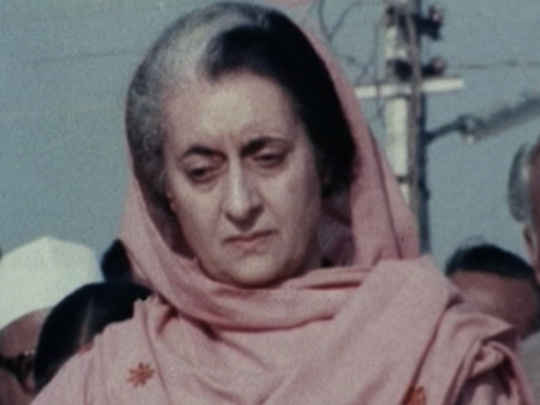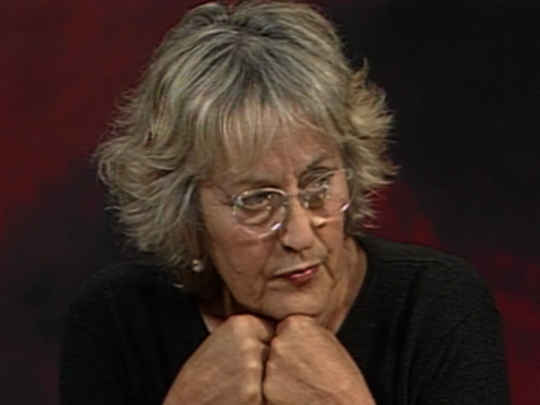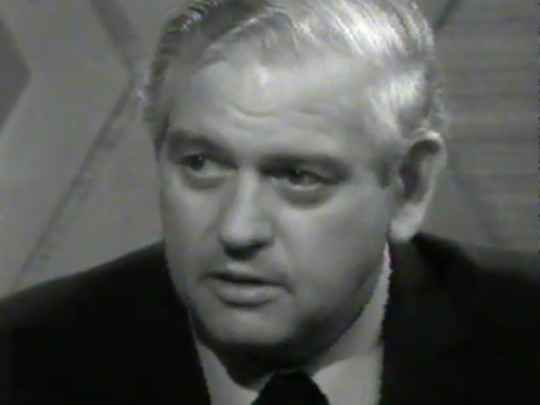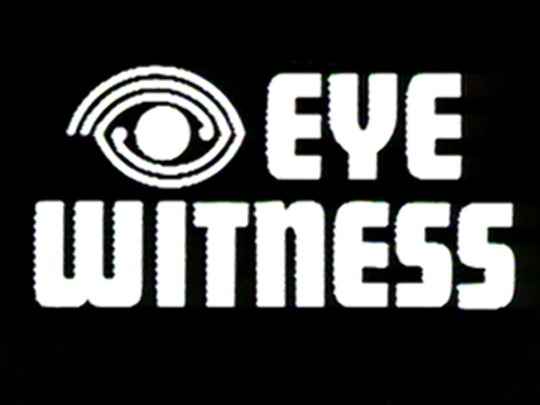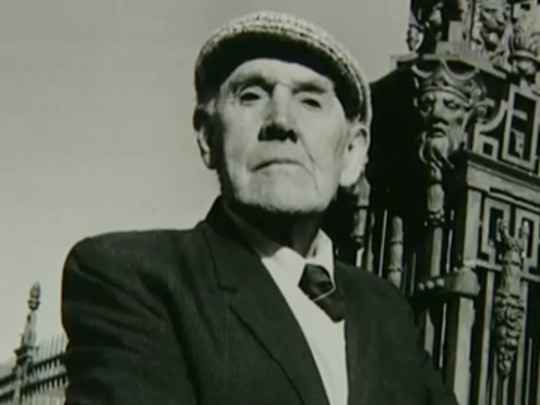Some women may be a little timid about their position. Some employers of course intimidate women, and make sure that they are frightened of their job. And this keeps them on low rates. Employers have said to me "we'll get rid of the lot, once we install machines". That attitude to me I find repulsive.
– Former union representative Flo Humphries on how women are kept back in the workplace
If you wanted to be an engineer there was just no way you were encouraged and no opportunity for you to learn; you couldn't learn how to take apart a car, how to fix an engine, what lights and fuses were, how they worked. There was no technical education whatsoever.
– Kirsten Wagner on how school didn't cater for girls who wanted to learn machine skills, early in this documentary
I don't remember ever getting any sex education, from anybody. It certainly was something I never talked about with anybody. For a long time I was very ignorant; I never really thought about it. I didn't know there was so much to think. You know. it just didn't exist.
– Mag Freeman recalls her nonexistent sex education
I left school when I was 17. I had no idea what I wanted to do. I was very lacking in self-confidence. I couldn't imagine a world outside of school; it just didn't exist for me. People seemed to know what life was about in a way that I didn't...and I used to feel there was some sort of key — that if I could ever turn it I would enter into this world of sort of knowing and confidence and being at ease socially, and just sort of knowing what it was all about.I felt very much an outsider in all sorts of ways.
– Law librarian Mag Freeman describes her younger self in the 1960s
Divorce in those days of course put a stigma on women. They wouldn't employ you if you had been married or had a child, and to be a divorcee was quite a hard thing to live with. I changed back to my maiden name of course. My second husband seemed to be more realistic, more down to earth, for the working people, and this was how I was feeling myself — that there was a challenge somewhere for the people to right a few wrongs for themselves.
– Flo Humphries on the social stigma for divorced women and solo mothers in 1940s New Zealand
I think children are a communal responsibility and if children join the house I'm living in, it will be a very conscious decision. I think we all feel that it's everyone's responsibility, the caring and upbringing of children, and . . . in 10 years if I want a child maybe I'll have one. But for me at the moment it isn't important.
– Student Kirsten Wagner on the possibility of becoming a mother in her current communal house
To the extent that International Womens' Year created community awareness . . . it advanced the feminist movement. Yet it did not reach nearly enough women. The commissioning of a 30 minute film for television was a deliberate attempt to reach a mass audience and at the same time by-pass the male control system of the existing media. The film was to provide a glimpse of what life is really like for New Zealand women. Some of My Best Friends are Women not only did this but it has also resulted in TV One agreeing that Deirdre McCartin and an all women crew make a further 10 documentaries on aspects of our lives. Without International Women's Year this series, which will reach far more women than any of us could ever hope to, would not be happening this year.
– A Broadsheet magazine article on the impact of the 1975 International Women's Year
For 30 minutes the screen was filled with the personal stories of three generations of recognisable New Zealand women, Flo a grandmother and ex trade unionist, Mag a single parent and librarian and Kirsten a student currently living in a communal flat. There wasn't a male in sight. The women spoke unflinchingly to the camera on all kinds of subjects that had never been aired on screen before. To the horror of many viewers Mag dared to talk about menstruation describing how she'd used makeshift bits of toilets paper or cloth to soak up the blood and how they "...had a tendency to fall out. I remember one fell out on Queen St. I stood there just paralysed with fear and shame and then ran as fast as I could, leaving this wretched cloth on the pavement.."
– Author Deborah Shepard descrribes this documentary in her 2000 book Reframing Women - A History of New Zealand Film, page 57
...and then I told another lie and I don't mind being quoted because if you live in a Machiavellian society you have to learn a few tricks. I said "of course the Department of Education made [the funding] conditional on it being an all-female crew" which was my notion, of course. At first I was told "no way, babe, they're aren't any sound people, there aren't any camera people" then I lost my temper. "Look I'm tired of hearing this, I want an all-female crew and I'm going to keep on fighting until I get one, and if you are trying to tell me that the women aren't trained well enough, I will take direct responsibility for trying to ensure that their training is advance somewhat, I'll spend the weekends and all my nights or whatever is required." Finally they agreed.
– Producer Deirdre McCartin on fighting TV One for an all-female crew for follow-up series Women, in Deborah Shepherd's book Reframing Women - A History of New Zealand Film, page 58
A nasal voice whined, "Women can doooo anything." And for maybe 35 seconds it seemed that this unmelodic and arrant nonsense was a funereal chant, a death sentence before the television trail of Some of My Best Friends are Women.
– Auckland Star writer Alan Murray, 25 November 1975

